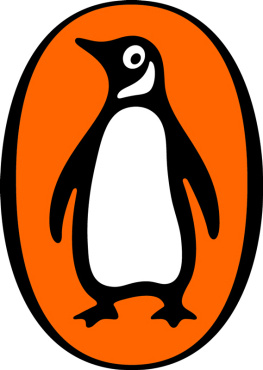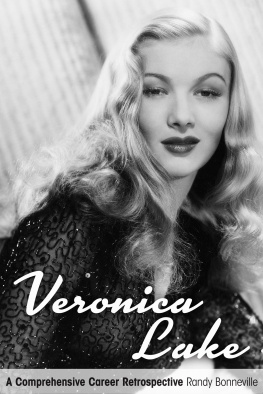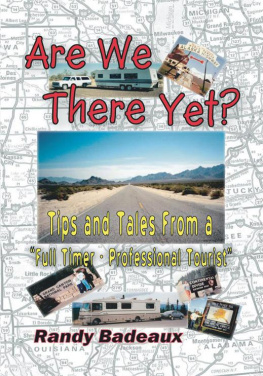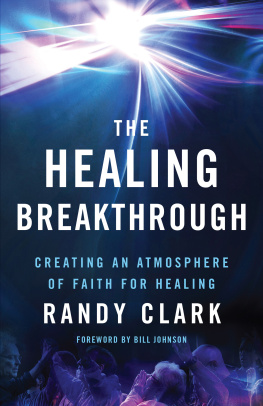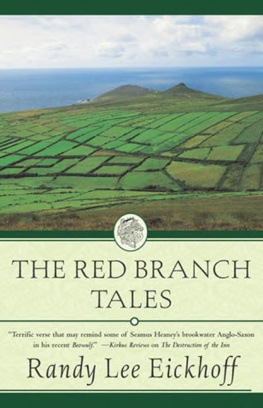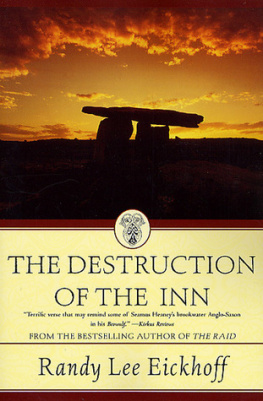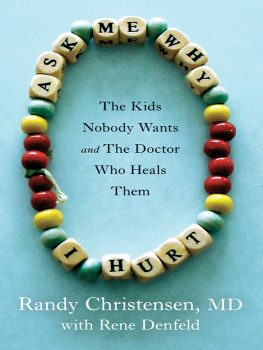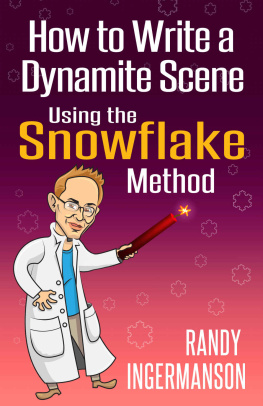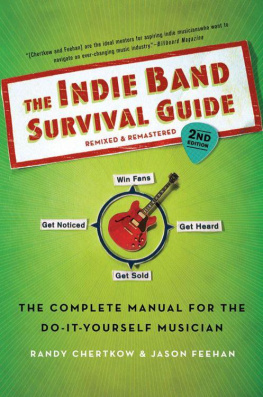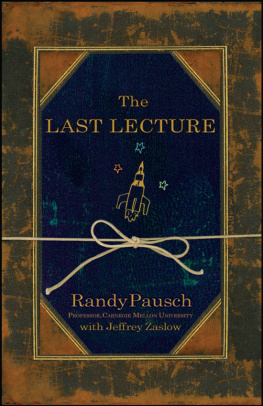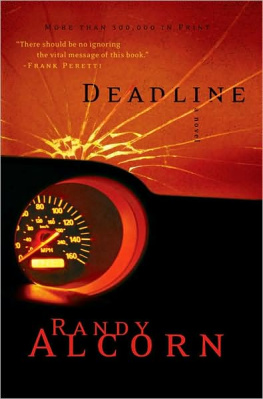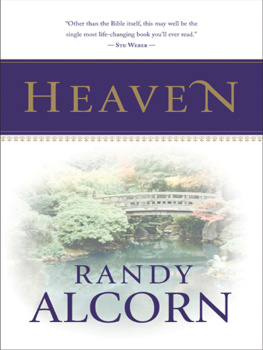
ALSO BY RANDY BACHMAN
Randy Bachmans Vinyl Tap Stories
RANDY BACHMAN


INTRODUCTION
One of the delights of doing Randy Bachmans Vinyl Tap is the feedback I receive from my listeners. I must have the most loyal pack of followers anywhere on radioand many of the themes Ive covered on shows have been prompted by their suggestions. These listeners really take the show to heart and feel connected to it and to me, so much so that theyre quite comfortable writing in and sharing their own life experiences, the music they love, and how and why they listen to the show.
Over the years Ive been asked through letters, emails, and in person many questions that dont always fit into the shows themes or context. This book is my chance to address those queries and give my fans the stories from outside the show, the tales from beyond the Tap. Ive kept a list of these questions for several years, and together with my friend, musicologist and writer John Einarson, weve selected twenty questions that serve as chapters in the book. Some of these questions are music-related, while others are quite personal. Some are long and elaborate, while others are short snappers. Answering them here gives me the opportunity to share my experiences as well as my thoughts and insights. Ive really tried to open up in these pages and give readers and my longtime listeners a glimpse beyond the public persona. You may not agree with everything I say, but you cant fault me for being honest and forthright. Thats the way I am on my shows. In doing so, I hope I answer the questions and tell you about the things youve wanted to know.
Rock on!

Are there any songs in particular that have changed your life?


Randy with Led Zeppelins Robert Plant, 2008.
R ecords have always been an integral part of my life. There are many songs to choose from, but this question is an easy one for me. Each of these recordings has had a significant impact on me and my career.
TUTTI FRUTTILITTLE RICHARD, 1955
When I saw Elvis Presley for the first time on a little black-and-white TV at my friends house, it was mind-blowing, worldshaking, and a signal of change for me as well as the rest of the world. I went out and bought the Elvis recording of Tutti Frutti, and besides wanting to be Elvis, I wanted to play guitar like Scotty Moore. Then someone, I think it was one of my brother Garys buddies from the Pro-Teen club, asked me if Id heard the version by Little Richard, the guy who actually wrote the song and first recorded it. When I listened to his Tutti Frutti it was wilder, more raucous, and even more mind-blowing and worldshaking than Elviss. Elvis sounded tame by comparison.
Whenever I hear either version of that song it takes me back to that time and rekindles my first impressions of rock n roll. Original rock n roll was all about anything goes, having fun, going a little crazy, and just letting it all out. The more lifechanging version for me, though, is the Little Richard one. Hes an original. And, as I talked about in the first Vinyl Tap book, I was lucky enough to have him play on a couple of Bachman-Turner Overdrive tracks. I was thrilled when Richard agreed to play piano on Take It Like a Man on our Head On album. Wed already recorded the track, and just wanted him to overdub his signature piano style. He arrived looking every inch the star that he was. I was in awe of him. However, once in the recording studio with him, we discovered that he couldnt play in the key of the song. Apparently Little Richard played only in certain keys, and this wasnt one of them. After several attempts, he was all set to walk out, until we figured out that if we slowed down the recording speed it could be played in Little Richards key. When we sped it up to the original speed it fit perfectly. Despite this hiccup, Little Richard was everything I expected and more. It became a learning experience for both of us and a dream come true for me, the kid from Winnipeg, playing alongside one of the rock n roll pioneers.
HOUND DOG BACKED BY DONT BE CRUELELVIS PRESLEY, 1955
I also saw Elvis do this on TV, and it had the same impact on me. It expanded Elviss wild side by including the Jordanaires on background vocals on both songs, merging gospel into rock n roll along with the wild hand clapping on Hound Dog. Again, Scotty Moores guitar playing and solos made me want to be a guitar player. I still have the 78 rpm recording.
When Elvis decided to use TCB as his logo after hearing Bachman-Turner Overdrives Takin Care of Business on a Los Angeles radio station, I was both stunned and honoured. This is the guy who facilitated my entrance into rock n roll and prompted me to start playing guitar. He used my song for his motto and his logo, which is on his headstone. Pretty awesome. That song not only changed my life but Elvis Presleys, too.
OH BY JINGOCHET ATKINS, 1953
Growing up in Winnipeg in the 60s was the most amazing experience. We had the greatest radio stations that played all the latest music and also broadcast live bands. When I first heard the CKY Caravan Saturday morning show, featuring Hal Lone Pine and Betty Cody and their band, the guitar I heard behind the vocals was Lone Pine Jr., a.k.a. Lenny Breau. I first met him at one of their Saturday morning broadcasts at Gelhorn Motors, across from Kildonan Park on North Main Street, and it was a life-changing moment. There was this kid, a mere two years older than me, playing like Scotty Moore, Chet Atkins, and Merle Travis all rolled into one. He was barely seventeen but was already a professional musician, playing full-time in his parents band and travelling with them. We became friends.
One of the first songs I heard Lenny play was the old 1920s standard Oh By Jingo. He played it Chet Atkins style, with the bass and melody, so it sounded like more than one instrument. The following week I bought the Chet Atkins recording of Oh By Jingo, and with Lennys help I learned that song as well as the rest of the album. I used to skip high school in the afternoons to go over to Lennys house and watch him practise. Hed show me how to play different things, and I gleaned so much from him. It was the greatest two years of my life (even though it resulted in my failing a couple of grades). I still play Oh By Jingo every dayas a warmup and as a memory of my great teenage years, playing hooky from school and spending afternoons at Lennys house learning rock n roll, rockabilly, country, and jazz. Years later, when the Guess Who signed with RCA Records and I met Chet Atkins at their New York office, our common thread was Lenny Breau and that song.
SCHOOL DAYS AND JOHNNY B. GOODECHUCK BERRY, 1956 AND 1957
I put these two songs together even though they were released a year apart because they were a pair of milestones for me and for rock n roll in general. Unlike Elvis, Chuck Berry was a singer, songwriter, and guitar player all in one. And unlike the fun, nonsensical lyrics of Tutti Frutti (or at least nonsensical to my naive prairie white-boy ears), Chuck Berry told stories with great characters and fantastic lyrics interwoven with a call-andresponse style between his voice and guitar. Hed sing a line, then reply to it with a great guitar lick. His backup band, with the one-and-only Johnny Johnson on piano, was an amazing entity in its own right.
Next page
